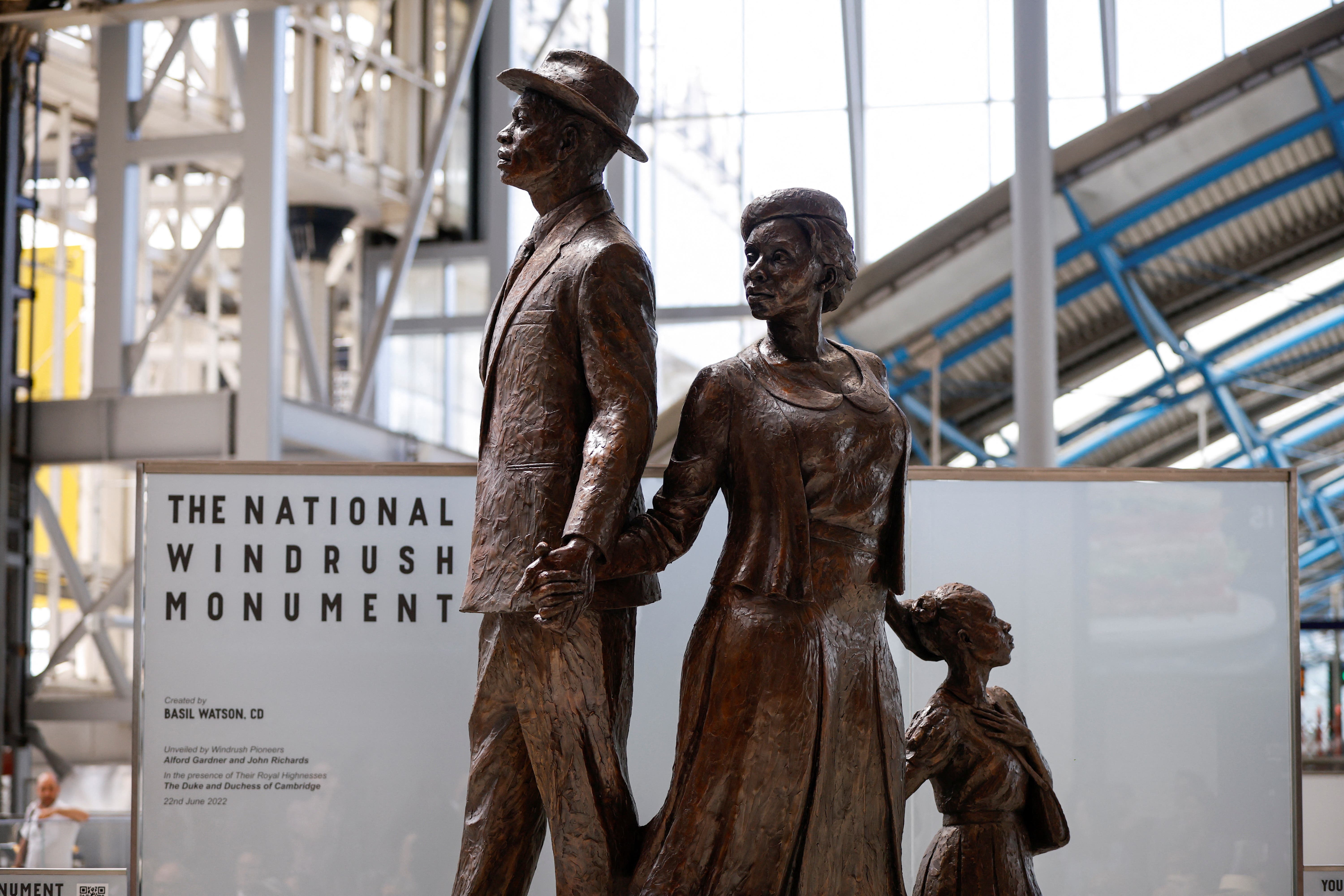On the 75th anniversary of Windrush, we want compensation not commemoration
The scandalous injustice of Windrush – that Black British citizens who had every right to remain in the United Kingdom were classed as ‘illegal immigrants’ and criminals – continues to be a painful legacy for thousands still waiting for compensation due to them, writes Noah Anthony Enahoro


Today marks the 75th anniversary of the HMT Empire Windrush arriving at Tilbury Docks on 22 June 1948. On board were nearly 500 British Caribbeans from the West Indies. It’s also the fifth year that Windrush Day – aimed at recognising and remembering those who arrived in 1948, their descendants, and their legacies – will be commemorated.
While we use today to remember the fight, plight, history, and long-lasting impact of the Windrush Generation, we must ask if we are, as a country, really in a place to celebrate this occasion without also mourning things that have happened since?
The “Windrush generation” (those who migrated from the Caribbean between 1948 to 1971) arrived after the passing of the 1948 British Nationality Act, which conferred Commonwealth Citizenship on British subjects who lived in the Commonwealth. The Act gave them the right to enter, live and work in the United Kingdom. Children who arrived under this act were not required to show documentation, as they would enter as children of British Commonwealth subjects. Tragically, it would be these very children that would find themselves victims, decades later, of what we now call the “Windrush scandal”.
As more and more Commonwealth citizens entered Britain after the 1948 Act, MPs and senior government figures took it upon themselves to find ways to deter non-white immigration. Many of them – most famously Enoch Powell – saw a growing “coloured” population as a threat. As a result, the 1950s to 1970s saw a wave of Immigration Acts passed, all attempting to halt non-white Commonwealth immigration.
This fear and hate-driven policymaking culminated in the 1971 Immigration Act. It had no immediate impact on the Caribbean migrants who had already arrived in the UK; but section three paragraph eight would, decades later, be used to victimise the children of the Windrush generation.
It stated that: “When any question arises under this Act whether or not a person is a British citizen… it shall lie on the person asserting it to prove that he is.”
This clause was weaponised by Theresa May and her “hostile environment”. It was used, along with the Immigration Acts of 2012-2014, as part of a crackdown on what politicians claimed to be a wave of illegal immigration.
The children of Windrush had not been required to possess documentation when they arrived, and now found themselves victims of racist policies. Lacking documentation, because they hadn’t needed it, they were nonetheless asked to produce the documentation that would prove their right to live in their home. As a result, many were wrongfully detained, and even deported to countries foreign to them. They were denied access to healthcare and employment benefits, and were branded as “illegal immigrants”.
This is the essence of the Windrush scandal. Black British citizens who had every right to remain in the United Kingdom were classed as “illegal immigrants”, and fell prey to decades of racially motivated anti-immigrant rhetoric and legislation. The victims were seen as criminals that needed punishment, rather than the innocent victims of badly drafted legislation. To this day, hundreds still await redress and compensation for the wrong done to them.
With each passing year, each celebration of Windrush Day, and each mention of “celebration”, “commemoration” and “contribution”, the harrowing and ongoing injustice visited on the children of Windrush remains.
A new commemorative 50p coin marking the 75th anniversary will be released by Royal Mint. What does this empty and pointless act of symbolism do for the hundreds of victims? Why produce a coin rather than pay actual compensation? What will these “celebrations” do for the wrongly deported or detained, whose families have been broken up and irreparably damaged? Will statues or paintings of Windrush individuals bring justice? We all know the answer to that.
This isn’t to say that the histories of the Windrush shouldn’t be commemorated or celebrated. They most definitely should be, but the victims of the British political and legal system require justice.
Suella Braverman has disbanded the Home Office unit tasked with reforming the Home Office department after the Windrush scandal, believing it is time to “move on”. Several key Windrush pledges announced following the scandal are to be ditched, and hundreds of Windrush compensation claims are yet to be addressed. The message is clear.
During today’s anniversary, we can’t let the celebrations and commemorations whitewash the fact that the Windrush scandal’s injustice continues to have a painful legacy for thousands of people. The politicisation of celebrations hides the racial hate that fuelled the policies that led to such great suffering.
Underneath it all, nothing has changed, but the veneer is being polished while the voices of the suffering are drowned out by officially sanctioned and orchestrated celebration.
Join our commenting forum
Join thought-provoking conversations, follow other Independent readers and see their replies
Comments


Bookmark popover
Removed from bookmarks